Monaco GP: McLaren will take title from Mercedes, says Ron Dennis
- Published
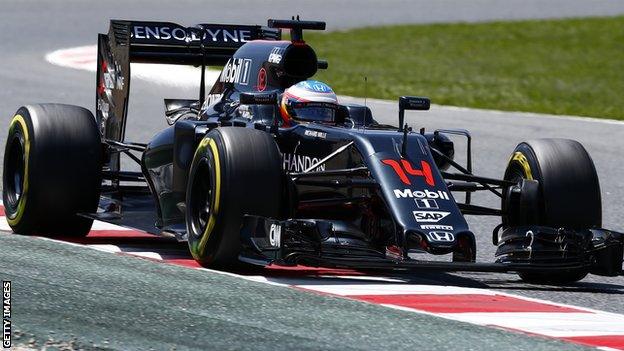
Fernando Alonso was sixth in Russia - McLaren's best finish of this season to date
McLaren will be the team to break Mercedes' domination of Formula 1, according to chairman Ron Dennis.
The team are languishing mid-grid following last year's establishment of a new engine partnership with Honda.
But Dennis told BBC Sport: "I honestly believe that the next world champions after Mercedes will be McLaren. We'll get to that goal before other people.
"It is challenging but I have a firm belief in the technical competence of our people and a firm belief in Honda."
McLaren began racing with Honda again at the start of 2015 after significant success during the 1980s. Since the resumption of that partnership, their best result has been a fifth place, scored by Fernando Alonso in Hungary last year. Their best result this season was the Spaniard's sixth place in Russia on 1 May.
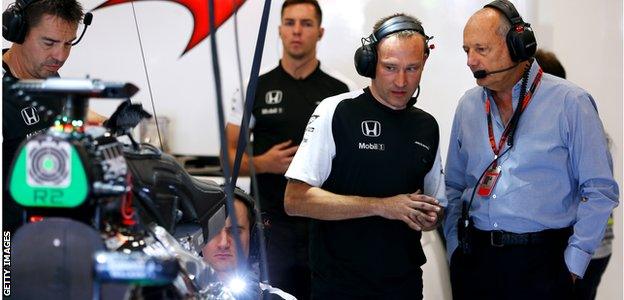
Is my shirt-buttoning optimised? McLaren boss Dennis is known for his exacting standards
But the team are making progress; the partnership qualified in the top 10 for the first time with Alonso in Spain last time out.
They face a demanding task to catch a Mercedes team whose drivers - Lewis Hamilton and Nico Rosberg - have taken the top two positions in the drivers' championship for the last two seasons.
Rosberg leads this season's title race, with Hamilton - the 2014 and 2015 champion - in third, while Mercedes are top of the constructors' championship table.
Dennis, though, believes the introduction of new car-design regulations next year will see McLaren return to competitiveness.
"The 2017 regulations level the playing field and it is enough time for us to catch up with Honda, so I think we'll have a good chance next year," Dennis said.
"I think we can win races. I don't want to predict world championships but I do feel that dethroning Mercedes-Benz is going to be a challenge for everybody and I have reason to genuinely believe we'll get there before anybody else."
Dennis, who was speaking to BBC F1's Tom Clarkson in an exclusive interview for a BBC Radio 5 live programme celebrating McLaren's 50th anniversary, said he believed Alonso was "still the best" driver in the world, adding: "It is frustrating not to be able to put him in the best engine-car combination.
"I like his maturity at the moment; he knows what's possible. He is very complimentary of the car at the moment, but that's because it's good."
How good is McLaren's car?
F1 teams use computers and mountains of data to assess the relative performance of their cars and engines.
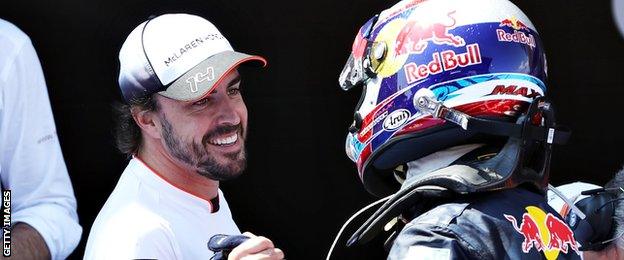
Alonso seems happier with McLaren's progress after, at times, saying it was "embarrassing" last year
Taking the engine performance out of the equation, McLaren believe their chassis is contending with Red Bull for second best on the grid behind Mercedes.
That sounds outlandish judging by the time gap between the cars - Alonso was 1.981 seconds off Lewis Hamilton's pole lap at the Spanish Grand Prix - but the evidence suggests they may well be right.
Engineers say the Circuit de Barcelona-Catalunya is one of the most effective all-round tests of an F1 car's capabilities.
The third sector of the lap is particularly good for separating out the chassis performance from that of the engine as it is predominantly slow and medium-speed corners with a comparatively small number of straights.
In that sector, Alonso was slower only than the Mercedes and Red Bull drivers in qualifying in Spain.
Alonso said: "It is quite positive. The third sector is quite a good reference.
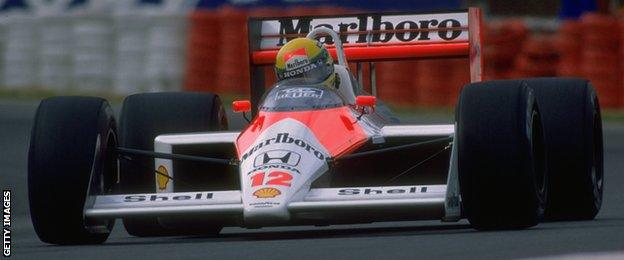
Dennis' last association with Honda saw them, and Ayrton Senna, dominate the sport during the late '80s
"We are in front of many of our competitors, which is probably a surprise to many people but not to us. It is good to be in front of Williams, Force India, Ferrari.
"We will see in the coming races if we can keep improving our efficiency and mechanical grip."
His team-mate Jenson Button added that, at the next race in Monaco this weekend, he expects "three teams who will be in front of us and the rest we can probably fight with".
Honda need to start delivering
Honda struggled on its return to F1 last year, with an engine that lacked outright power and also ran out of hybrid boost part-way down most straights - leaving the car in the region of at least 250bhp short of the Mercedes for a significant proportion of the lap.

Since McLaren's last title in 2008, they have actually won more races than Ferrari
Honda has made big steps forward with its hybrid system over the winter, so energy deployment is now much less of a weakness. But the engine is still in the region of 80-100bhp down on the Mercedes, insiders say.
Honda F1 boss Yusuke Hasegawa will not put a figure on it, but accepts that the engine is the biggest part of McLaren-Honda's overall performance deficit.
"I have to think it is coming from the engine," Hasegawa told BBC Sport. "That is our motivation. But also I don't think we have such a big difference between the Renault engine and the Honda."
Insiders believe the specification of the Renault engine raced so far this season is in the region of 50-60bhp down on the Mercedes. But the French manufacturer has a performance boost of around 30bhp due for the Canadian Grand Prix next month, a development that was tested in Spain last week.
Honda has not yet said when it will make its next step forward in engine performance, but the company plans a development to the turbine within the next month that will improve the hybrid system's efficiency.
Hasegawa said Honda was also working on combustion efficiency, which he said was the "biggest area for improvement".
This is a major area of development in F1, as rivals follow Mercedes in the deployment of a clever new ignition system that boosts power and efficiency by igniting some fuel in a pre-chamber before it is injected into the main part of the cylinder., external
Through this and hybrid technology, modern F1 engines have made revolutionary progress in converting fuel energy into power - jumping from 29%, the normal figure for petrol engines, to close to 50%.
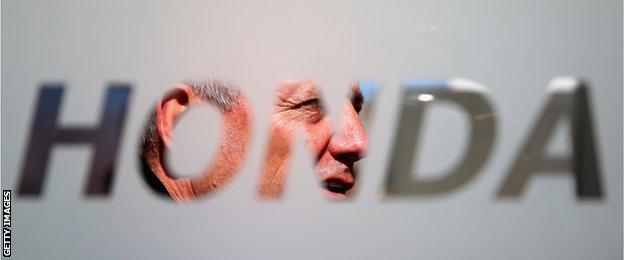
Dennis believes Honda will deliver despite two difficult seasons in F1
The Mercedes engine is said to produce in excess of 950bhp.
Hasegawa said Honda was delaying the introduction of some developments to ensure the most efficient use this year of engine 'tokens', which are ascribed to parts of the engine and are limited.
"I would like to spend the tokens effectively," Hasegawa said. "So if we put some of the combustion modifications, we need two tokens. And add another modification, another two tokens.
"But if we put those two changes simultaneously, we can use just the two tokens. So that's why I would like to wait as long as possible."
What about 2017?
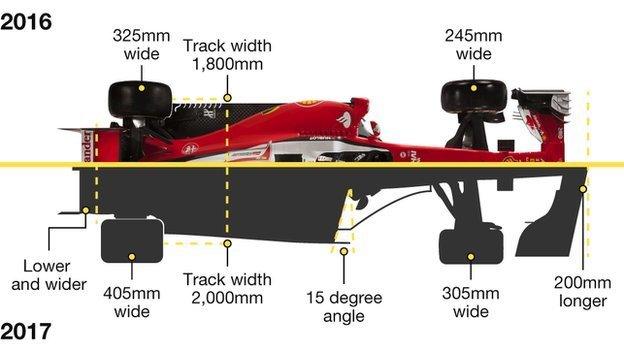
Rule changes are coming - and Dennis believes they could benefit McLaren
Engine development restrictions will be removed from next year, as part of a package of rules aimed at ensuring performance converges between the manufacturers.
But fuel efficiency will remain key as total fuel and its flow rate are limited. As Hasegawa puts it: "Higher power means better fuel consumption because the fuel flow is the same."
Honda's current engine is a different layout from all others in F1. It houses the turbo and its related compressor inside the engine's cylinder 'vee', which restricts their size.
Mercedes say that the bigger the turbine, the more power they can produce as long as the hybrid system works efficiently enough to recover the energy it produces without too many losses.
Like Honda, Mercedes have their compressor at the front of the engine and the turbo at the rear, joined by a shaft on which is sited the MGU-H, the part of the hybrid system that recovers energy from the turbo.
But on the Mercedes, the compressor and turbo are outside the vee at the front and rear of the engine, so their size is not limited. Renault and Ferrari both have their compressor and turbo together at the rear of the engine.
Some sources say Honda has already decided to change its engine layout for next season, adopting the route chosen by Mercedes.
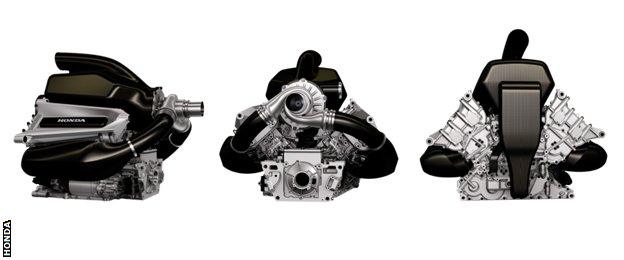
Boost pressure: Honda's 1.6 litre V6 turbo hybrid engine is still down on power compared to its rivals
But Hasegawa said he was still evaluating the options, insisting that it was theoretically possible to recover sufficient energy from the turbo with the company's current design to be competitive.
"Of course, just following the Mercedes layout and packaging is the easiest way," he said, "but if so, we can't overtake them. That's why we are investigating and very much considering what direction to go.
"I know there are lots of benefits from their package so if we can copy them, maybe it is the easier way. But of course we don't want to."
McLaren insiders say Hasegawa's promotion to Honda's F1 boss, replacing Yasuhisa Arai over the winter, has greatly increased their confidence in the programme.
This is because Hasegawa is steeped in racing, having been chief engineer of Honda's previous F1 programme from 2002 to 2008, and better understands the needs of a competitive F1 team.
Hasegawa admitted he felt "huge pressure" to win with McLaren.
"From the name of Honda," he said. "Honda has to win."
- Published18 May 2016
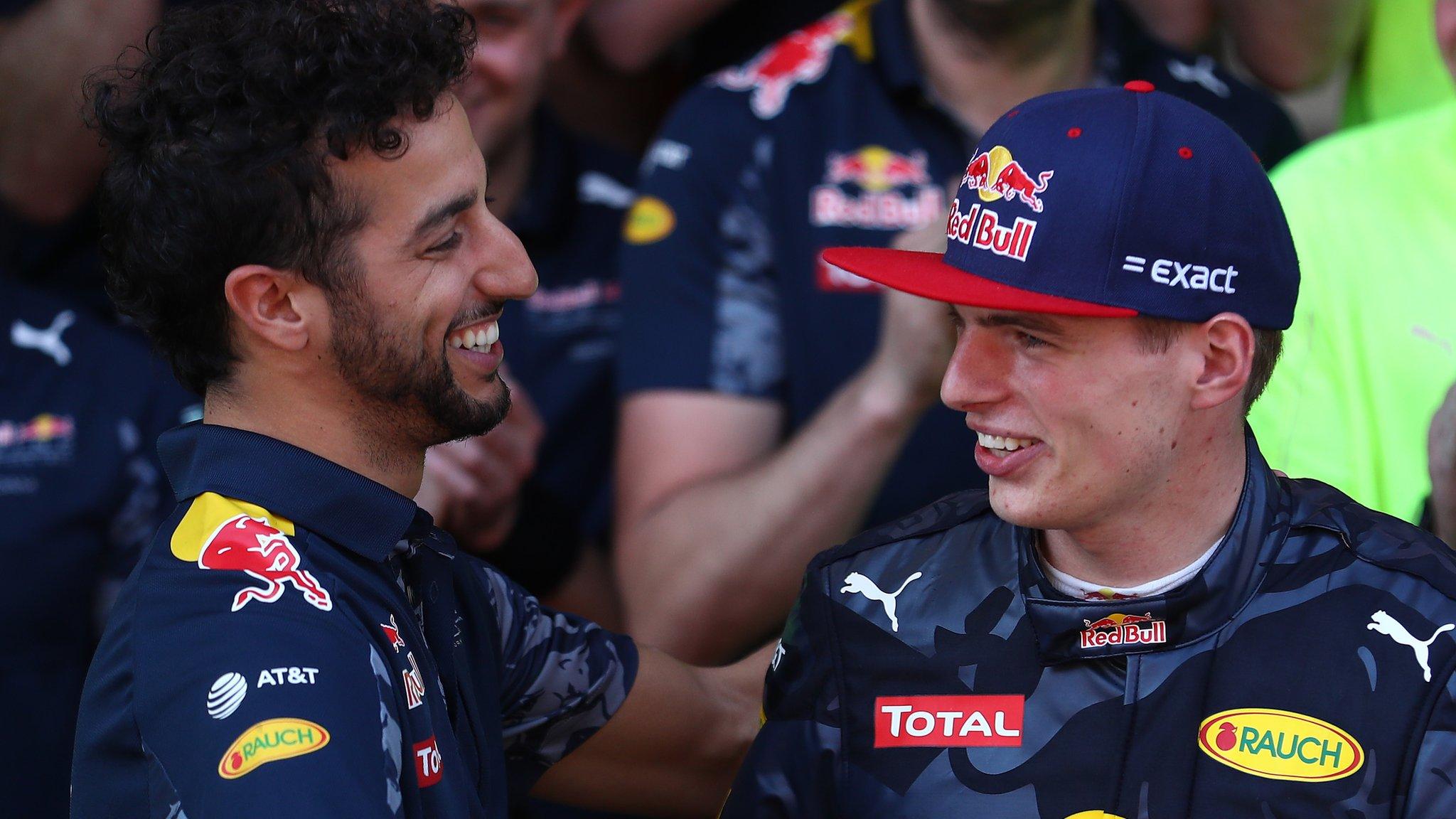
- Published18 May 2016
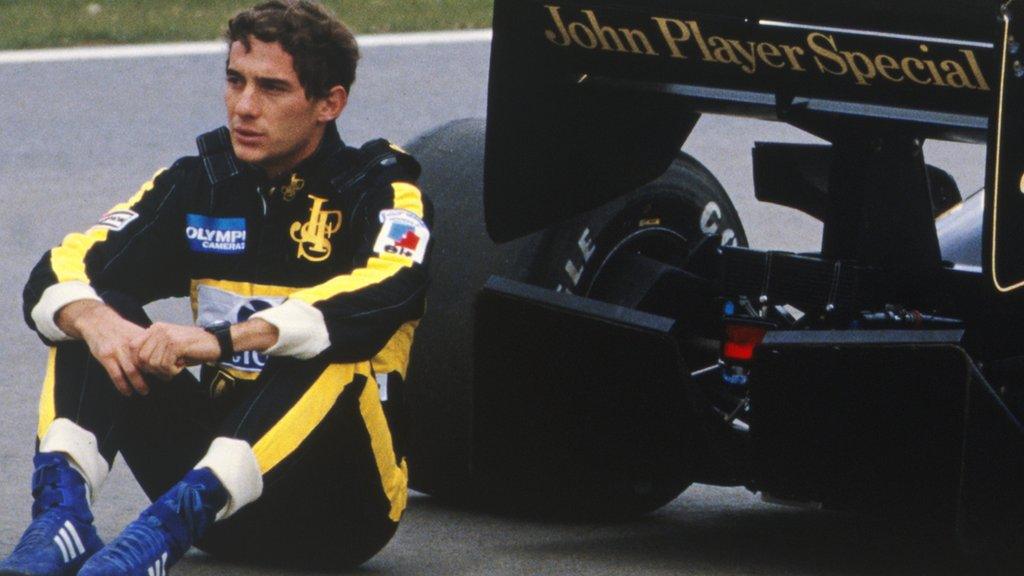
- Published18 December 2015

- Published2 November 2018

- Published26 February 2019
